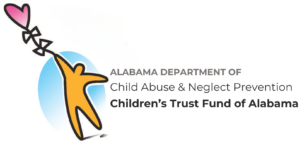Weight gain is not uncommon when someone is newly sober from mind-altering substances. Often it can be a distraction from the recovery process and a threat to creating a new, healthy lifestyle. No matter your weight or size, feeling comfortable in your body and having a positive body perception can be a challenge. The last thing you need during your recovery process is the guilt and shame that can come with putting on extra pounds.

Why it happens:
If this is so common then, why does it happen? First and foremost, when you take away your drug of choice, your body attempts to enhance your sense of well-being in other ways by activating your brain’s reward pathway to produce the perception of pleasure. Alcohol and drugs hijack your brain’s hierarchy of needs, sense of happiness, energy, and motivation. Naturally, when those are removed, you are going to feel low. Activities like eating, sex, and exercise can temporarily give you a boost of dopamine and even short-term relief. Some refer to this as the addiction transfer, because you remove one substance and are left with a physical and spiritual void that needs filling. To some this may translate into eating an entire bag of chips and not knowing why; similar to how alcoholics will take one drink and not be able to stop.
Chances are, if you’re coming out of an addiction lifestyle, your body needs fuel to help regenerate cells and heal. Food may have no longer been the priority during active addiction and the body learns to preserve energy in starvation mode. Often, your cells are either damaged or overexerted from processing harmful substances while still trying to keep you alive and functioning.
Learning to Love Yourself Where You’re At:
Giving Yourself Grace and Patience:
Getting sober is one of the most life-saving and genuine forms of self-love that you can give yourself. Personally, I had to extend myself grace for taking the steps to reach sobriety in the first place and learn how to be patient. During active addiction, I was not giving my body the nutrients and care that it needed, and I was constantly putting it in starvation mode when I would go on week-long cocaine and alcohol benders. When I gave up my old way of living, I knew healing was not going to happen overnight.
I know weight gain can be a scary and sensitive topic for many, especially if someone has a history of eating disorders. I personally struggled with an eating disorder, anorexia nervosa, before I ever had my first sip of alcohol. I remember feeling uneasy and discontent with myself and life in general. I didn’t realize it at the time, but as a result of feeling powerless over things out of my control, I tried to manage my life by restricting calories to change the way I looked. It quickly became an obsession, similar to the mental obsession I was a slave to during active addiction.
However, I knew I did not commit to going through the uncomfortable process of beginning recovery just to replace it with a different obsession, food and body image. That did not seem like the happy, joyous, and free life that I was working hard to achieve. So, the practice of patience and grace was foundational to my journey of sobriety.
Find a Recovery Program and Make it Your Top Priority:
I have been told this so many times and it’s honestly been true for me. “Just focus on your recovery and everything else will fall into place.” Just because I decided to get sober didn’t mean all of life’s problems went away… it was quite the opposite. I had years of life challenges that I had been running from that I had to come face to face with.
Finding a program of action that worked for me, which happens to be the 12 Steps of Alcoholics Anonymous, has been fundamental in my recovery. By working my program, I have been able to surrender my belief systems of what I think life should look like to a power greater than me. I never thought the 12 steps could help me with my body image, but it has given me a way of living where I no longer feel like the world has to change for me to be okay.
A quote that my sponsor has shared with me that I have found true is, “I don’t think too much or too little of myself but I think too often of myself.” When I am not hindered by a fear of not being good enough, I become connected to something greater than myself which leads me to a desire to help others. When I am outside of myself and am focused on helping others, it releases me from my obsession about alcohol and drugs, and also my body perception.
Exercise:
You know how food and drugs activate the brain’s reward system? Exercise has been found to affect the brain in a similar way by releasing endorphins. Recent literature from the Recovery Research Institute suggests that physical activity can help speed up the healing process of the brain due to its effects on neuroplasticity and white matter.
Exercising daily has been extremely beneficial in my recovery because it boosts my self-esteem and energy. When I was drinking, I went through phases of not exercising at all. When I did choose to get some exercise, I would have to schedule workouts around when I was not hungover or sick from withdrawals. This recognition has allowed me to attach gratitude to my ability to move and be active, as well as being more in touch with my body. I encourage people to start small and be consistent with exercises that seem more enjoyable. I have always felt walking and hiking are the most underrated ways of being active.

Meditation:
Practicing mindful meditation has also been an important part of my recovery. It has helped me stay present and pause before reacting throughout my day. At the beginning of sobriety, it felt like I was on an emotional rollercoaster. Often I would react out of temporary emotions and would lead to my eating mindlessly or negative self-talk about my body. My thoughts are not always a reflection of reality and can be influenced by projections of the past or future. When I start to feel restless or irritable, I like to take a step back and ask myself “where is my body physically and does that align with where I am at mentally.” Most of the time the answer is no and that’s why meditation can be so beneficial, to connect the mental and the physical.
Eat to Fuel Your Recovery:
This is a tough one. I used to hate dessert until I got sober. I remember there was a point that I ate ice cream nearly every night for a month. I was craving sweets because my body was used to me binging on alcohol, which was then processed into sugar, and now it needed a replacement. I went through phases of feeling guilty and wanting to crash diet to get back to my old body but in reality, my “old” body was sick and unhealthy. I would catch myself saying things to my sponsor like, “I weighed so much less when I was drinking a box of wine a day,” or “Losing this weight would be so much easier if I could take adderall.” She reassured me that everything would level out with time and encouraged me to stay focused on my step work.
Eating with the mindset of using food as fuel to make me feel well so I can be present and show up for life has been challenging but gratifying. Eventually I started to eat healthier foods because they simply made me feel better. That doesn’t mean I don’t eat sweets anymore, but I stopped feeling like I need them to feel okay or ashamed when I indulge in them. Consuming small meals throughout the day so my blood sugar does not drop and to avoid getting hangry has been crucial for me.
I still have poor body image days but now they no longer dictate my ability to live life with contentment. There was no ‘Aha!’ moment where I magically felt I had the perfect body that I had always dreamed. It was more of a random realization where I noticed I had been feeling confident and comfortable in my own skin for a while and it had nothing to do with my weight. I think that is a challenge many people in recovery have – we want quick relief. The cycle of using drugs to change the way we felt was such a quick and simple equation, but that design of living is no longer sustainable for us. By working a 12-step program of recovery and continuing to grow spiritually, I have found peace with where I am, regardless of my weight. For this I am grateful.
Sources:
https://www.recoveryanswers.org/recovery-101/brain-in-recovery/









